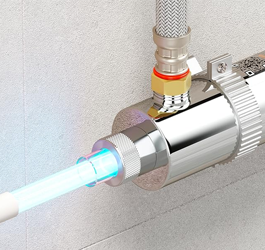If you've already taken steps to purify your household water with filtration, you might wonder whether additional ultraviolet (UV) filtration is necessary. UV systems are becoming increasingly popular among homeowners aiming for maximum safety, especially when traditional water filters don't address certain contamination risks.
Here's a straightforward guide to understanding when you might need a UV water filtration system added to your home.
Understanding UV Filtration
A UV water purifier system uses ultraviolet rays to disinfect water. It effectively neutralizes harmful microorganisms, including bacteria, viruses, protozoa, and fungi. However, it's crucial to understand that UV filtration doesn't remove chemical contaminants, heavy metals, or sediments—this is where standard filtration systems typically excel.
When Should You Consider UV Filtration?
Here are some common scenarios when installing a UV filter is particularly beneficial:
1. Reliance on Private Water Sources (Wells)
If your home relies on a private well, groundwater contamination from microbes such as E. coli, Giardia, or Cryptosporidium is a genuine risk. Even if your water appears clean and clear, microorganisms can still be present. Traditional sediment and carbon filters will not necessarily neutralize these microscopic pathogens. In such cases, a UV system is strongly advised.
2. After Heavy Rainfall or Flooding
Heavy rainfall or flooding events often introduce pathogens into municipal and well water supplies. If your area regularly experiences flooding, or if groundwater flooding is a concern, a UV purification system ensures that your water remains free of harmful microorganisms.
3. Recurrent Microbial Contamination
If water tests consistently show microbial contamination, despite conventional filtration methods, UV filtration provides peace of mind. UV filtration ensures these microorganisms are neutralized, making your water safe for drinking and everyday use.
4. Immunocompromised Household Members
If anyone in your household has a compromised immune system—due to illness, age, or ongoing medical treatment—adding a UV purifier is advisable. UV purification provides an additional level of safety, ensuring harmful microorganisms cannot threaten vulnerable family members.
5. Post-Filtration Microbial Growth
Occasionally, microorganisms may colonize within plumbing after water has passed through standard filtration systems. This situation, known as biofilm formation, can lead to water becoming re-contaminated downstream of your filter. A UV purifier installed at the endpoint ensures that your water remains uncontaminated right until consumption.
Combining UV with Existing Filters
Typically, homeowners who benefit most from UV filtration already have existing filtration systems—like sediment or activated carbon filters—to manage chemicals, chlorine, sediment, taste, and odors. A UV filtration system complements rather than replaces these filtration methods. In fact, using UV alongside other filters provides comprehensive protection:
- Sediment filters ensure that large particles don't shield microorganisms from UV rays.
- Activated carbon filters remove chemicals that UV cannot address.
- Reverse osmosis systems remove dissolved solids, which UV systems alone cannot eliminate.
Signs Your Home Needs UV Filtration: Quick Checklist
- Your home uses well water or private water sources.
- You live in an area susceptible to floods or heavy rainfall.
- Regular water tests detect harmful microorganisms.
- Household members have compromised immunity.
- There's evidence of microbial growth or biofilm formation post-filtration.
Final Thoughts
A UV filtration system provides a reliable and cost-effective way to protect your family from harmful pathogens without the need for chemicals. While it isn't necessary for everyone, in scenarios where microbial safety is a concern, UV filtration is an excellent complement to your current home water filtration setup. To learn more about Aquaboon UV filtration products, check here.












